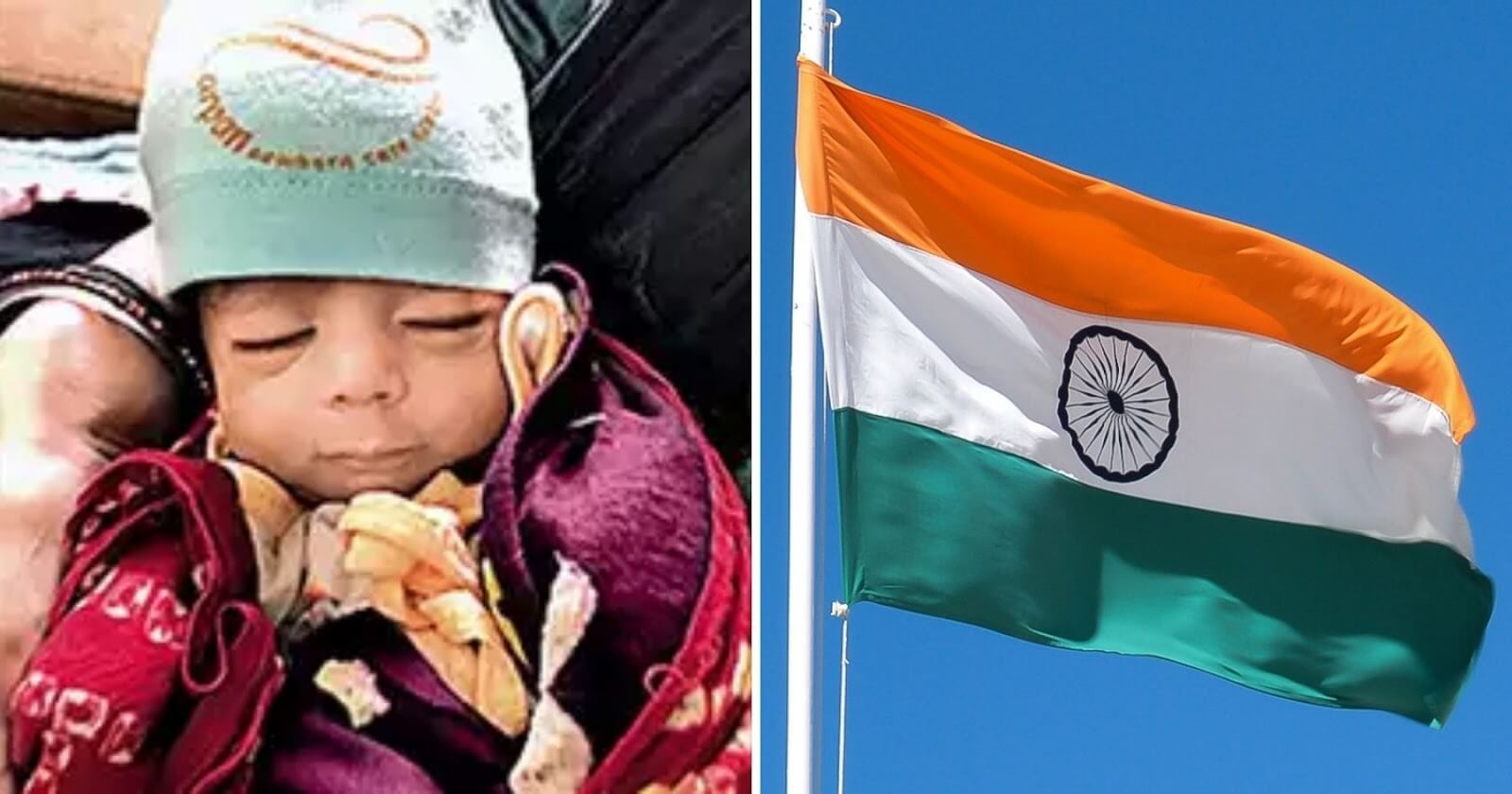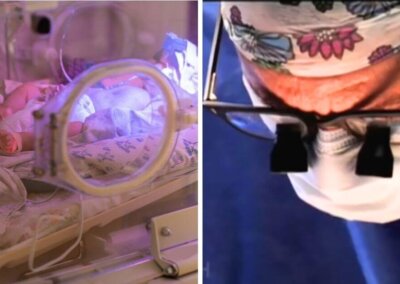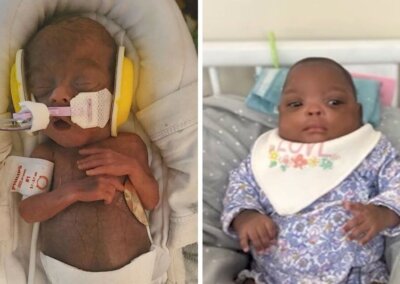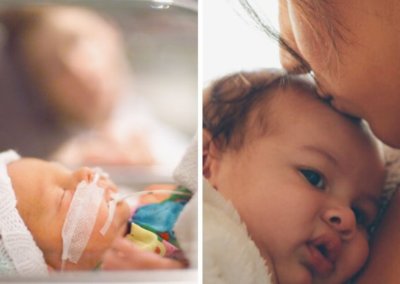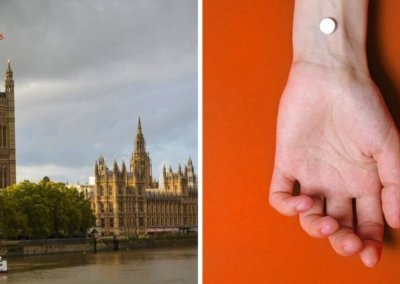A baby born weighing just 740 grams has survived a months-long battle with COVID-19 and Multisystem Inflammatory Syndrome (MIS-N).
She has survived with no major complications, and her parents are now able to take her home.
MIS-N is a condition that, in this case, appears to have been triggered by COVID-19 antibodies passed onto the baby at birth from her mother. Born on 19 June 2021 at 27 weeks gestation, she was, according to senior neonatologist Dr Ashish Mehta, the smallest ever baby in the country to survive the disease, according to the Indian Neonatal Network Collaborative database.
He added that “This case will be documented for national and international platforms as it sets new treatment standards in [the] post-Covid world”.
10 days after birth, the baby’s body went into cardiogenic shock and began systematically shutting down. She then battled for life for 73 days. Large doses of steroids were administered to treat her condition – the first time such a method had been tried. There were concerns over heavy doses of steroids being administered to such a small baby and top Indian neonatologists Dr Praveen Kumar and Dr Dinesh Chirla were consulted.
The baby girl’s parents, Arvind and Joshana Prajapati did not have the funds to pay for extended and advanced treatment. Arvind explained, however, that “There was another couple whose premature child was admitted here. They offered to pay a significant amount for her treatment. Doctors too waived off their fee. These strangers stepped in like family to help us in the biggest crisis of our lives”. As an accountant, he earns 10,000 Rupees (equal to just over 99.6 GBP) per month and said that the treatment would have been well beyond the couple’s financial means.
Babies born before and shortly after the abortion limit
Babies are continuing to be born before or shortly after the abortion limit of 24 weeks gestation in India and going on to live and even thrive at greater rates than before. Studies suggest that the majority of premature babies grow up to be healthy adults without any major health problems.
A study published in the Journal of the American Medical Association in October 2019, followed 2.56 million babies born in Sweden between 1973 and 1997, around six per cent of whom were born prematurely.
Researchers compared the health data of premature babies to those that had been born at full term. They found that 55% of premature babies had no serious chronic, physical, or mental health issues by early adulthood. This is compared to 63% for babies born at full term.
Additionally, with each passing decade, the odds of survival for a premature baby to adulthood have improved from about 91% of babies born in the 1970s to about 96% of those born in the 1990s.
The survival rate for extremely premature babies has doubled over the past decade, prompting new guidance allowing doctors to try to save babies born as early as 22 weeks into a pregnancy.
Sex-selective abortion in India
A paper published last April by a leading medical journal estimated that 13.5 million or more baby girls were aborted in sex-selective abortions in India between 1987 and 2016.
While India outlawed sex-selective abortion in 1994, it has remained a common practice and it is responsible for approximately fifty per cent of the world’s “missing female births”.
Researchers also admitted that they may have underestimated the “true extent” of missing female births by applying the conservative natural ratio of 950 girls per 1,000 boys. When they tested a ratio of 975 girls per 1000 boys, they calculated over 22 million missing girls at birth.
India is thought to have 63 million fewer women since sex-determination tests took off in the 1970s and research suggests India will have an estimated 6.8 million fewer female births by 2030 because of the popularity of sex-selective abortions.
Potential explanations for this include cultural attitudes that prioritise boys’ education, due to the perception that they are the main breadwinners, and the (outlawed) practice of dowries for girls, which in turn brand women as socio-economic burdens.
A spokesperson for Right To Life UK, Catherine Robinson, said: “It is wonderful to see that the doctors at this hospital, and the kind parents who offered to pay for the other parents’ treatment of their baby girl, were able to ensure that she triumphed over her health complications, even as they were dealing with India’s difficult second wave of COVID-19. As medicine continues to advance, so do the survival rates for premature babies such as her”.
“Yet it is tragic to see that in such a self-professed age of progress, abortion based on the sex of the child in the womb is still regularly happening in India, despite it being outlawed; a practice that disproportionately impacts baby girls. We must take action to foster a global climate in which all babies are valued for their inherent dignity as living human beings and not one in which they are unfairly treated as a burden”.


